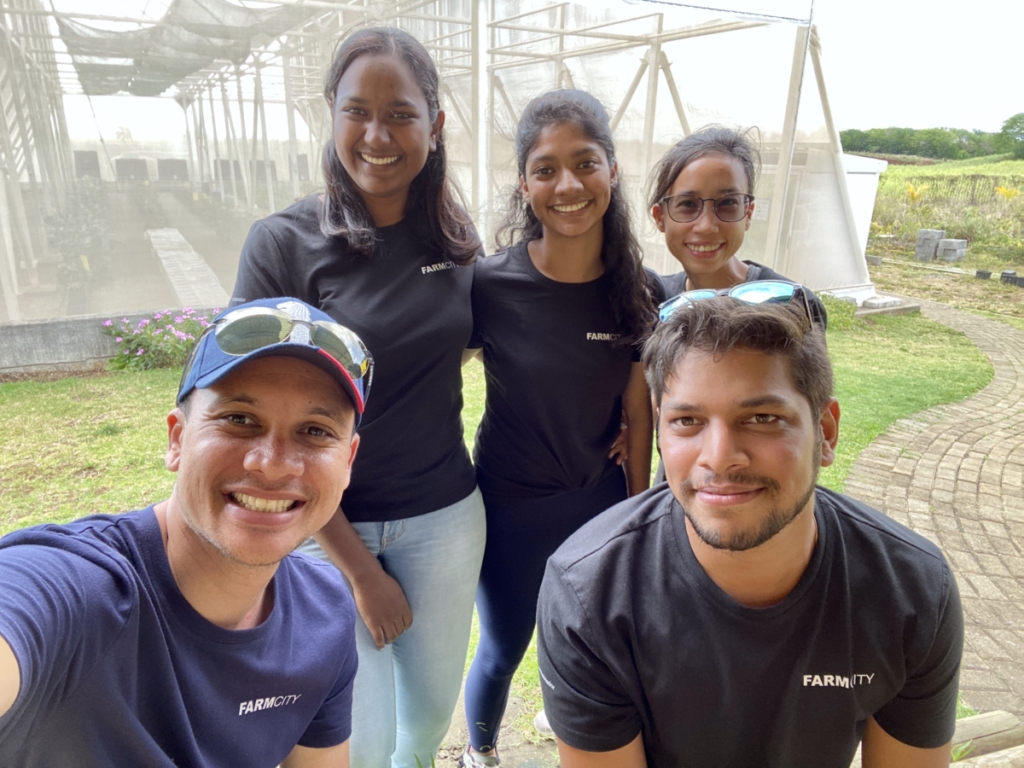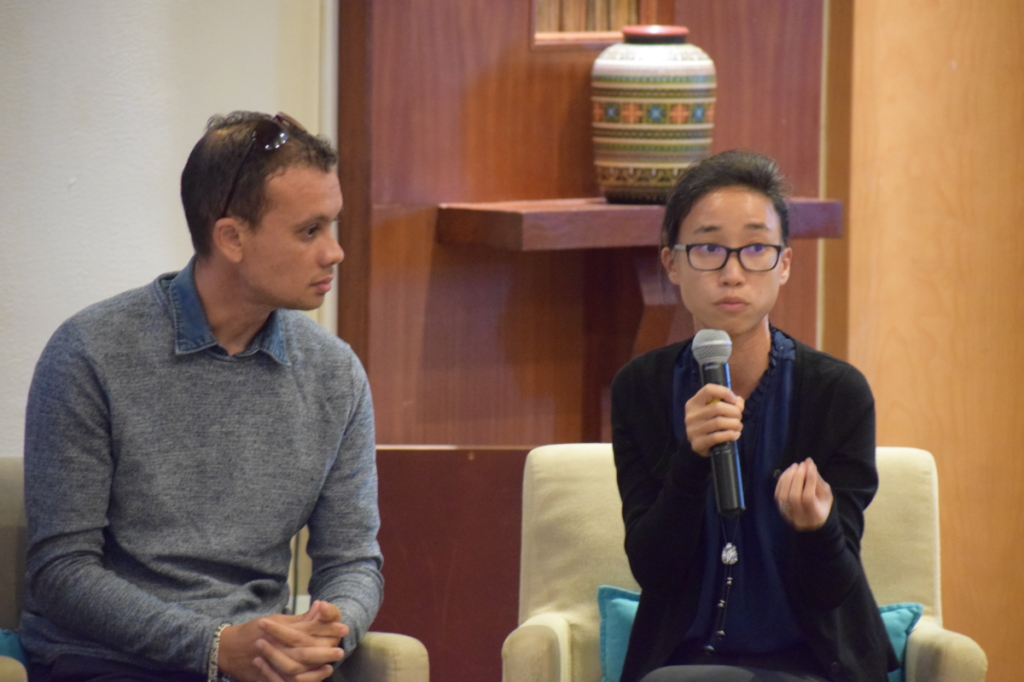
Kelly Ann (top right) with her team on their farm in Mauritius
Kelly Ann is co-founder of Farmcity, a social enterprise with the aim to increase access to healthier vegetables for everybody. Farmcity uses agriculture as a tool to develop entrepreneurship capacity in the Youth of today, so they can build the Agripreneurs of tomorrow. View their work in action: www.farmcity.co
Kelly Ann participated in the CABRI Mauritius country review on the role of governments in developing agriculture value chains, where she presented some of the key challenges facing the youth in the agriculture sector.
Over 60 per cent of Africa’s population is below the age of 25. By 2035, 350 million new jobs will need to be created for them. Even as automation and Artificial Intelligence (AI) replace the jobs and industries we are familiar with, the agricultural sector holds promise of providing the youth employment opportunities the continent desperately needs. Despite this, youth participation in the sector remains limited. How might we make the sector more attractive to young people? A seemingly simple question without a one-size-fits-all solution, not surprising given the diverse landscape, people and cultures of the continent.
In Mauritius, the general notion is that the answer lies in increased access to technology, land and funds. We posit, however, that this is secondary. If we want to make agriculture more attractive to the youth, we would first need to create an environment that develops agripreneurs. It is agripreneurship, rather than agriculture, that has enormous potential to contribute to a range of social and economic development through employment generation, poverty reduction and improvements in nutrition, health and overall food security in the national economy.

Kelly Ann speaking at the CABRI Mauritius country review on the role of governments in developing agriculture value chains
Youth voices are critical to the dialogue because they face the consequences of our actions. We need to empower them to investigate the very problems and opportunities that affect their own future. Who else knows better about what would work, but young people themselves? We see a glimpse of how powerful youth-led initiatives can be in our work with young people in both urban and peri-urban areas of Mauritius. In one program, we asked 150 junior youths between the ages of 11 and 15, “If you were the Minister of Agriculture, how would you make agriculture more attractive to the youth?” The top 3 suggestions that emerged were:
- to introduce agriculture as a compulsory subject in school,
- have more activities that involve agriculture, planting (gardening) and protection of the environment, and
- to create better working conditions (e.g a higher salary) for farmers
Simple, doable solutions; no fancy technologies required.
We also need to listen to what they want - the sector must offer the reward, purpose and growth that our youth are seeking. For too long, the sector’s focus has been on yield per square meter and profit at all cost. This mindset has perpetuated extremely pollutive and extractive agricultural practices - heavy pesticide and herbicide use, unfair trading terms, monoculture to name a few. The endless pursuit of profit also means that agricultural workers are among the lowest paid employees. This is one of the main reasons why the youth continue to view the sector negatively. A comprehensive study conducted by the World Economic Forum in 2018 found that the millennial generation view climate change and the destruction of nature as the most critical issue, with 90 percent of them agreeing that humans are responsible for climate change.
The same study found that “a sense of purpose/impact on society” remains one of the top criteria for young people when considering job opportunities. It also found that young people have a ‘conscience for social issues’ and they expect companies to get involved and address these issues, even if it is not related to their core business. We see this reflected in our small but growing team. The average age of our team is 27, and our most recent hires are university graduates. They contribute actively to vision and strategy, and are quite the opposite of the ‘job-hopping generation that cares little about work’ image so often represented in the media. While our experience is anecdotal at best, we firmly believe that replacing currently extractive practices with fairer, more purposeful and sustainable agricultural practices would go a long way in increasing youth participation in the sector.
Finally, the sector needs an image overhaul. As young agripreneurs, we live the reality of being in an industry that few of our peers want to be in. Our peers react with surprise when we introduce ourselves as farmers, and that surprise often turns to disbelief when they realize we do it full time; that it is not “just a hobby”, or something we do until “something serious comes along”. Their reactions are not surprising, most of us have simply been conditioned to view farming as a menial job. Few realize that beyond ‘just’ cultivating the food we eat, farmers constantly have to be at the top of their game when it comes to strategic planning of breeding cycles and harvesting periods, risk management to mitigate damage from ever changing weather patterns, relationship management of suppliers, customers and everyone in between, accounting and cash flow management so the bills remain paid, D-I-Y skills to repair and maintain the myriad of tools on the farm, resilience to ride the variability of nature, and increasingly social media management because it is the most accessible from of marketing for small businesses. These are responsibilities that are certainly far from menial; they are a necessary set of skills required of entrepreneurs. We spent the last decade celebrating the tech entrepreneur, it is about time we celebrate the agripreneurs.